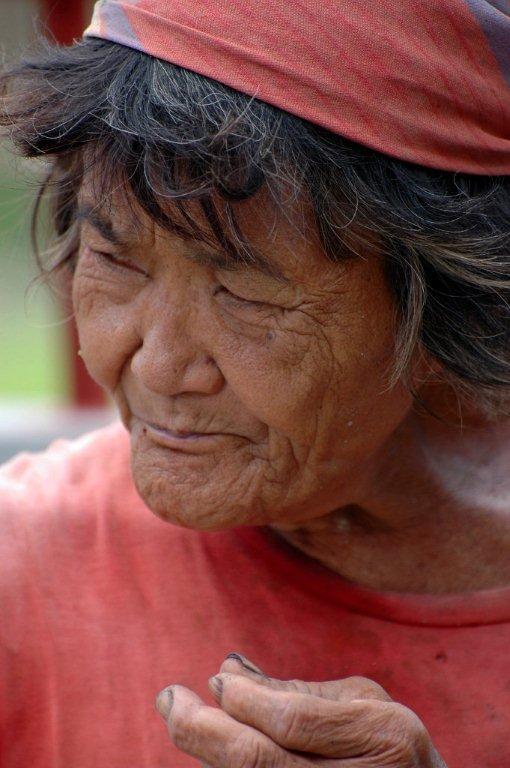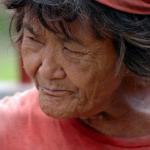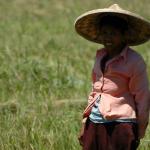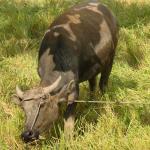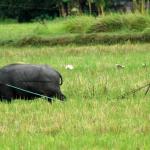The last Tribes of Mindanao, the Yakan; Mountain Dwellers.
Mindanao, the Philippines' southernmost island, is a virtual and cultural melting pot, although Mindanao carries many influences and flavours from other lands, many indigenous tribes inhabit the vast regions of Mindanao.
Each group is fiercely proud of their separate identities and culture. One of the majority Muslim groups that live on the hillsides on the island of Basilan, which was formerly known as Tanguina, is the Yakan. A horse-riding hill tribe believed their descent stems came from the Orang Dyaks or the Tagihamas of Eastern Indonesia.
The Spanish conquistadores named them Sameacas, meaning mountain dwellers; they are believed to be the traditional settlers of this island that is the largest in the archipelago.
During colonial times the Spaniards branded the inhabitants of Basilan as Yakan, a mispronunciation of the word yakal, the name Basilan has originated from two words Basi (iron) and Balani (magnate). Centuries ago the island was thickly covered by the yakal trees. The typical physical characteristics of these tribal folks, tall, a brown skin, slanting eyes, black hair and high-bridged noses, distinct them from other ethnic Filipino groups. The Yakan have their own identifiable culture and are culturally and by religion related to other Moro groups.
The Yakan preserved an Islamic lifestyle that differs from the majority of the Philippine population. Their believe can be described as Folk Islam, they have two spheres of belief integrating Islamic principles and the more traditional beliefs. They follow Saytan, the various spirits in heaven and in the natural environment, showing the remaining influence of pre-Islamic religious beliefs, which are fused with old Islamic rituals. This can be traced back in their ancestral offerings, spirit worship, death rituals and planting rituals. They believe in Surga (heaven) and in Narka (hell). A Yakan has to work hard on earth to reach heaven after death, for the Yakan heaven is a place where the soul can find peace, joy and happiness. The mosque has continuously played an active role in the guidance of the Yakan community, a place of worship and a place of education, it is considered to be the center of the community and a place that binds the tribal community together.
The Yakan are known as fierce warriors, they follow a strong internal code of honour that define the circumstances under which a life should be taken. A human being is opposed to an animal; therefore a man is entitled to have a dignified death. A man should never be killed while eating and while taking a bath. Respecting such protocol will justify the killer's deed when he is judged by Allah who will acknowledge that while he is a killer, he allowed his victims to die decently.
The people of the Yakan are primarily farmers, they reside in the mountainous interior region of Basilan Island, rice, coconut and cassava are the main crops, and the soil is cultivated with the use of ploughs drawn by water buffaloes. Of all the crops rice is most grown, the first seed has to be planted at the centre of the rice field and must be done by the local Imam, who is also responsible for the prayer before planting and harvesting. They believe that Monday, Tuesday, Wednesday are good working days and the remaining days of the week are bad working days. The diversity and rich culture of the gentle Yakan tribe is best portrayed in their annual Lami-lamihan Festival, showing the traditional Yakan customs and traditions, music, traditional dances and crafts that has long been preserved. Yakans will proverbially lay out a red carpet and warm hospitality for spectators who will come and visit this festival. One of the highlights is the traditional display of Yakan hand-weaving, famous among local and foreign tourists. The Yakan women are known as excellent weavers and are famous for their beautifully woven traditional costumes of cotton and pineapple cloth. Because the finished materials are not exactly identical, almost every Yakan fabric can be described as unique, the most intricate designs are woven in their clothes, purses and other accessories.
The tribe is known to be peaceful and respectful as shown in their manner of greeting strangers. When meeting people of the tribe a visitor has to join them in Mang-Upa, a betel nut chewing ritual. It has a symbolic value at ceremonies and cultural events and practiced at the beginning of social events, it is offered to guests as a sign of hospitality and to strengthen social ties. The Yakan are, just like many other indigenous groups on Mindanao, victimized by an ongoing war which has no winners, only losers. Many Yakan families have fled to safer grounds, abandoning their homes in Basilan and moved to neighboring areas of the Zamboanga Peninsula.
The Yakan, fierce and dignified warriors, a peaceful and respectful tribe that is forced to travel in all directions trying to find a new homeland that will never be their own land.
 ThingsAsian
ThingsAsian